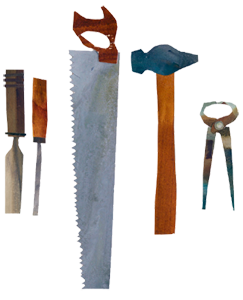Environments for Agency
Technologies have power not just as tools, but as metaphors.
AirBnB, for example, is both a tool to help you share your home, and a way to describe ideas that, prior to AirBnB, would have been difficult to imagine: an AirBnB for cars, an AirBnB for office space, an AirBnB, even, for dogs.
We tend to underestimate the power of technologies as metaphors, because after a while, we stop using the metaphors explicitly. Modern day fast-food joints, call centers, farms, big companies, and schools all came from the metaphor of the factory, even though people no longer say, as the dean of Stanford’s School of Education did in the early 1900s: “Schools should be factories in which raw products, children, are to be shaped and formed into finished products.”
The factory metaphor has been especially potent in our culture because of its promise of efficiency, and there is something to that claim. Efficient processes make complex things possible. It is hard to imagine an artisanal process for making a commercial aircraft.
But the efficiency of the factory comes at the expense of ingenuity. The factory worker has the natural capacity for ingenuity, but the assembly line gives him little opportunity to use it. The system requires him to implement other people’s ideas: “weld this piece to that one.” Without agency, the worker’s ingenuity begins to wither. He has the seed, but not the soil.
If we want to create environments for agency, we would be well-served, instead, to look to small-scale systems of production. Agency is inherent in these systems, since they don’t create a distinction between those who have ideas and those who implement them.
The startup is one example of such a system. Startup founders are modern-day artisans, and indeed startups tend to be wellsprings of ingenuity.
There are other examples as well: in education there is the one-room schoolhouse, in transportation there is the small bicycle design shop with a 3D printer, in agriculture there is the small-lot permaculture garden. These systems all offer the people involved more agency than the industrial systems that dominate today. In many ways, they remind me of the past.
But I might predict one difference between the small-scale systems of the past and the small-scale systems of the future. The gardens, the bicycle design shops, the one-room schoolhouses of the future, they will produce at a small scale, they will make decisions at a small scale, but they will talk to one another at a large scale. They will be decentralized, but not disconnected.
When these systems do come, we will be prepared them, because they will resemble another metaphor, one that I think has more staying power than the factory. If we stand back far enough and squint, we might find that they look like the Web.
